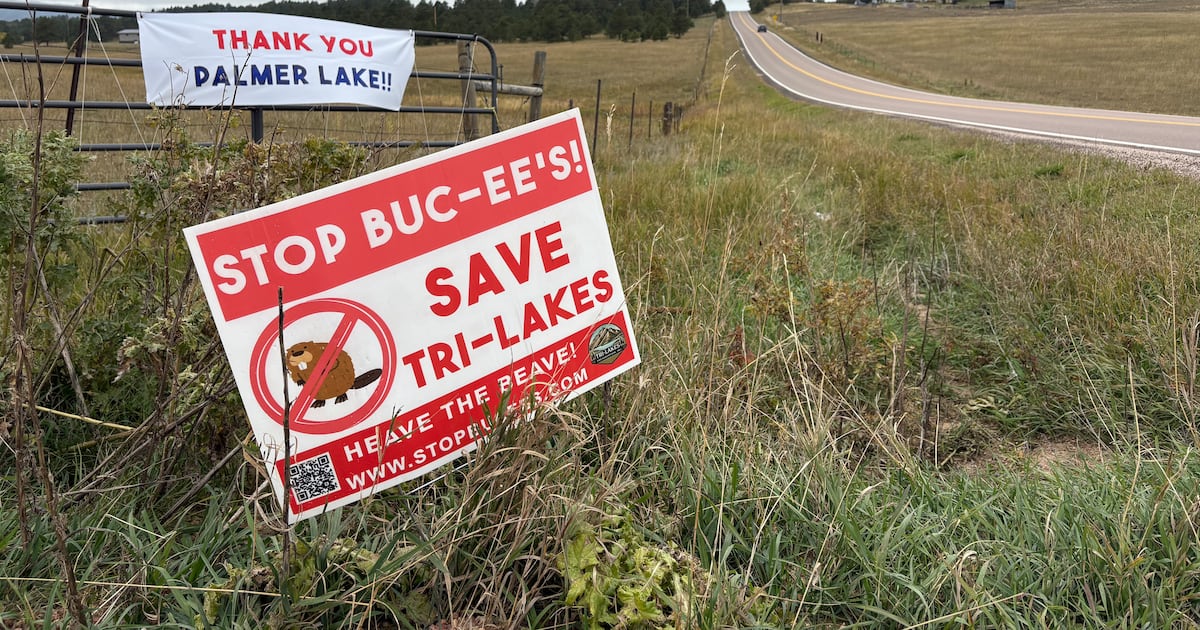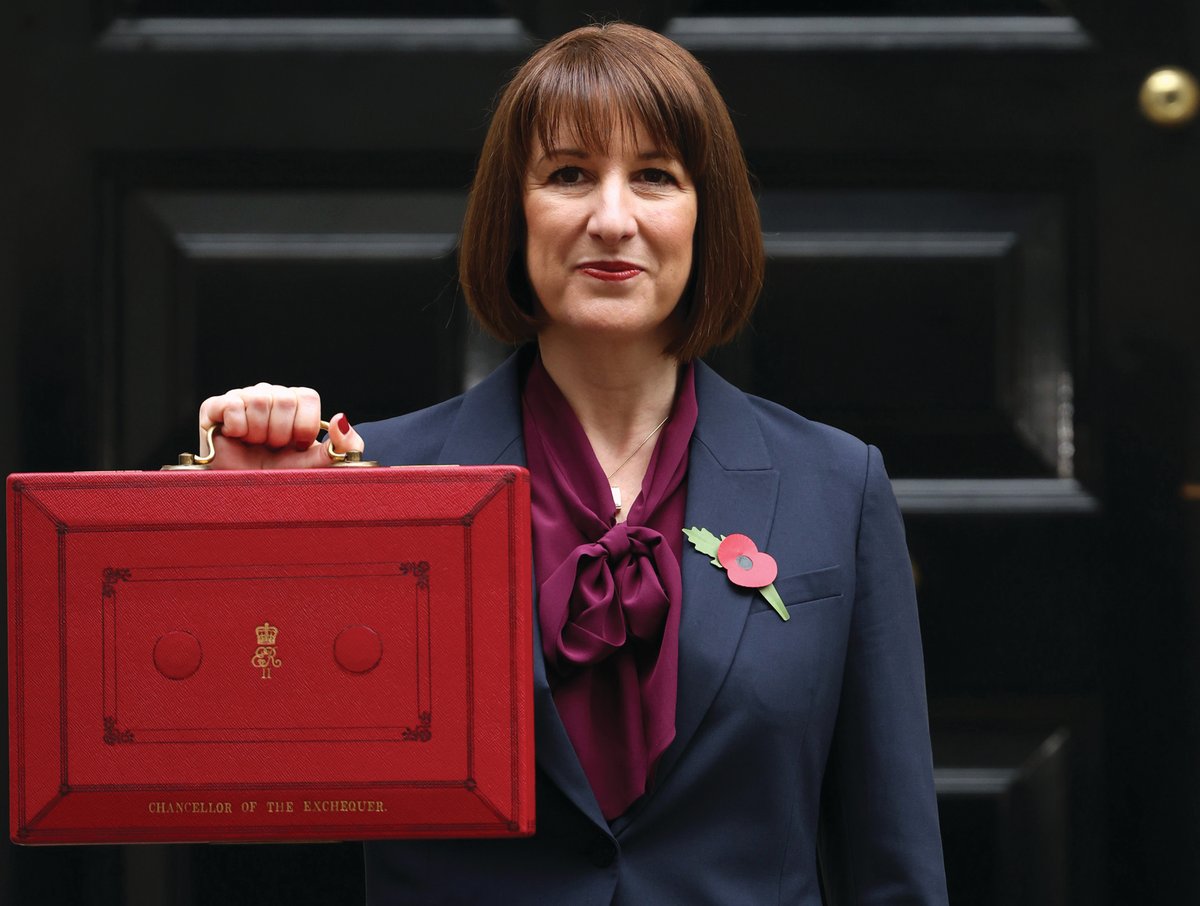Copyright Anchorage Daily News

PALMER LAKE, Colo. - The organizers of the pumpkin patch outside the town hall canceled this year’s event so that “evil doesn’t win.” A local lawyer stopped watching Sunday football at the sports bar because he got tired of people yelling at him. A gregarious chef turns his head when he drives past neighbors who have shunned him. Over the past year, the social fabric of this town of 2,500 has been torn apart by a gas station - an enormous gas station. Buc-ee’s, the Texas chain known for its jaunty beaver mascot and sparkling bathrooms, wants to erect a 74,000-square-foot travel plaza - far larger than a football field - along the nearby interstate. The proposal is expected to go to a public vote this winter. But already, it has led to cursing at packed town meetings, mudslinging on social media and texts, accusations of vandalism, litigation, the downfall of a mayor, the ouster of two town trustees and the resignation of a third. Combatants on both sides see themselves as saviors of a town they cherish for its quiet streets, forested foothills and dark skies. Those in favor of the project insist the financial security of new tax revenue will preserve Palmer Lake. Those opposed say there is nothing preservationist about a colossal commercial venture that would threaten wildlife and groundwater. But many residents fear the bitter fight has already inflicted lasting scars - whether or not the Buc-ee’s is ever built. “I think those divisions will take possibly a long time to heal,” said 50-year-resident and former mayor Paul Olivier, who teared up when speaking about the polemics around Buc-ee’s. “We have people that lived here and that were friends for many years and now they’re fighting against each other. … We have family members opposing family members.” He would know. His daughter and grandson have spoken publicly against Buc-ee’s. “It will be stark shift in our town’s culture forever,” Chase Olivier, 20, told the board of trustees in December, shortly before it voted to advance the proposal. - - - Large or extra-large The Buc-ee’s plan was inflammatory from the instant it was unveiled last fall. For its second Colorado store, the company eyed a plot of private land along Interstate 25, nearly two miles east of town. But it needed a source of water - a tall order in the drought-stricken West. Mark Waller, an attorney and former Republican state lawmaker who is now the company’s on-the-ground consultant, knew the leadership of Monument, a larger town closer to the parcel, was wary of more growth. Waller proposed a “flagpole” annexation, connecting the property to Palmer Lake via a narrow strip along a rural road. In return, Buc-ee’s has offered to cover costs including two new wells - one of which the town had priced at $4.3 million but could not afford on its own. Palmer Lake could net around $1 million in additional sales tax annually, a bump of more than 30 percent. Even though the store would not be visible to Palmer Lake residents, the reaction was fierce. This would be no ordinary gas station, after all. Buc-ee’s is a roadside attraction of colossal proportions, where devotees and road-trippers push shopping carts past walls of beaver-logoed trail mix and jerky, cases of brisket and soda fountains that dispense drinks only in large and extra-large cups. There are housewares, grills and auto parts. Outside, gas pumps - scores of them - create their own horizon. The Palmer Lake project would have 820 parking spaces. At a heated board meeting in December, trustees considered whether the Buc-ee’s parcel was eligible for annexation. An overflow crowd shivered in the cold outside the century-old town hall. Some commenters hailed the plan’s benefits. Far more argued that it would drain the water supply, that it wouldn’t bring the promised revenue and instead would attract traffic and crime. Over nearly three hours, the trustees, all volunteers, interrupted public comments with strikes of a gavel. The vote, they insisted, was just about eligibility, not about the merits of the project. It passed. - - - ‘Like everywhere else’ Gene Kalesti was stunned. He and his wife, avid hikers, had moved from a Denver suburb to Palmer Lake a few years before. They hosted Halloween parties and Friendsgiving dinners at their ponderosa pine-shaded home. Kalesti, a chef by day, volunteered on the town parks commission and helped build bridges and trails. “It’s the last community on the Front Range that is still a mountain town with the humility and quaintness of a mountain town,” he said. With Buc-ee’s, he felt sure, “it will become like everywhere else.” Among the trustees who had voted yes were a friend, Shana Ball, whose recent campaign he had worked for. Another was Kevin Dreher, an acquaintance. Kalesti felt betrayed. Opponents joined forces with Integrity Matters, a Colorado Springs group. It filed a suit, with Kalesti as one plaintiff, alleging First Amendment, due process and open meeting violations and arguing that the annexation was improper. Opponents also initiated the recall of three trustees, including Ball and Dreher. Ball, a former town fire chief who runs an assisted living residence, said trustees negotiated a deal that could be a game changer for a town that could not afford upgrades to dirt roads, drainage and water infrastructure. Dreher initially viewed the Buc-ee’s idea as a “giant F-you to our neighbors” in Monument and North Woodmoor, a neighborhood across the interstate whose residents thought of the gas station as a giant lightbulb marring their mountain views. He said he asked everyone he encountered in Palmer Lake their opinions and found 50 percent opposed. But he called leaders in two other small towns with Buc-ee’s and heard raves. Dreher said he came to slightly favor the plan: “It impacted Palmer Lake in a bigger way positively than I thought it impacted North Woodmoor negatively.” The opposition got a big boost from media billionaire John Malone, one of the nation’s largest landowners. Twenty-five years ago, he had spent millions to buy much of the 21,600-acre Greenland Ranch for a conservation easement. Today, it provides a bucolic buffer between sprawl from Denver and Colorado Springs, as well as crucial elk migration routes, views of the Rockies and grazing for cattle. The grassy terrain is directly across a rural road from the Buc-ee’s site. “An invasive species from Texas threatens the last major piece of protected open space on the Front Range: a ball-capped beaver named Buc-ee,” Malone wrote in an op-ed with former interior secretary Ken Salazar. The saga continued to rage, much of it on Facebook and NextDoor, where adversaries traded accusations of payoffs and bullying. Buc-ee’s withdrew and refiled its application in the spring, promising low lighting and the promotion of local activities and artists. Palmer Lake trustees again deemed the parcel eligible for annexation. The mayor resigned when texts leaked out in which she ridiculed opponents as “terrorists.” The anti-Buc-ee’s campaign seemed to gain momentum in September, when the town’s planning commission recommended the trustees reject the annexation in a final vote. Soon after, voters recalled both Ball and Dreher and elected two anti-Buc-ee’s residents in their place. They also approved - 765-375 - an initiative requiring voter approval of all annexations. That was when Colorado Gov. Jared Polis (D) joined the fray, beseeching Buc-ee’s to find another location in the state. Opponents thought the drama was ending. They now had the majority on the board. “There seemed to be almost a calm that came over the whole area,” said Shelley Warner, a resident of North Woodmoor. “Because it was just, like, over with.” - - - Never-ending strife It wasn’t. But at an early October board meeting where many expected a zoning hearing that would end with trustees rejecting the annexation, Buc-ee’s requested a public vote, which it would pay for. The town attorney advised agreement. The room erupted. “You’re a joke!” someone yelled. “Idiot!” said another. Someone yelled that the town attorney was on Buc-ee’s payroll. Another shouted something about a sex act with a beaver. The board voted 4-3 for an election, enraging opponents who wanted it to be over. They took no public comment. Outside the town hall, opponents unfurled a banner reading “STOPBUCEES.COM.” Dreher brushed past Kalesti in the crowd. Neither greeted the other. “Buc-ee’s has shredded this community in half,” said Kalesti, shaking his head. The next day, another town trustee quit, saying she would have voted against Buc-ee’s but that her skin was “too thin” to continue serving. A state judge also dismissed Integrity Matters’ lawsuit, but opponents were undeterred. Days later, they initiated an attempt to recall yet another trustee and talked of pursuing federal litigation. - - - Pretend friends Days after that vote, Kalesti drove down his shady street past the home of the couple he and his wife no longer play board games with because they did not approve of Kalesti’s involvement in the recalls. He turned away from another house where, he said, one resident might flip him off. Kalesti had not spoken with Ball since early this year, though he said he still believes she is a good person. She feels differently about him. “They pretended to be my friends,” she said of Kalesti and other members of her campaign team. “The minute I disagreed with them on something, they became so hateful and nasty towards me.” Other small bonds of shared life have snapped. Waller said he no longer watches his beloved Chicago Bears at the steak pub. In nearly 20 years in politics, he said, he’d never seen a situation so “mean, nasty.” The plastic window on his BMW convertible was slit recently. “I can’t prove anything, but I’m convinced that this happened as a result of my work on this.” Kalesti said he dreams of reviving an old tradition of having potlucks before trustee meetings, “where we’re all laughing and eating together,” he said. “I absolutely would like to try to help repair it. One hundred percent.” As for the pumpkin patch, an organizer of that event and others, including a Christmas tree lighting, said in a social media post that the gatherings would eventually return. But first, she wrote, the town must “let it sink in just how bad this truly has gotten.”



